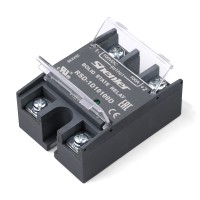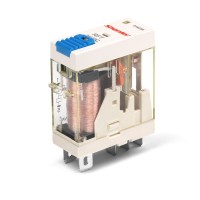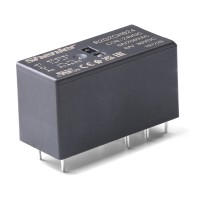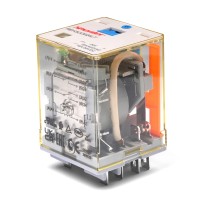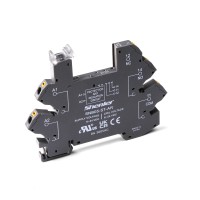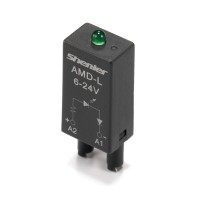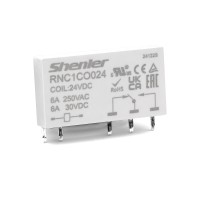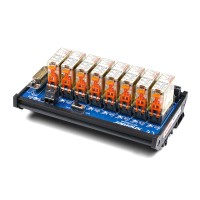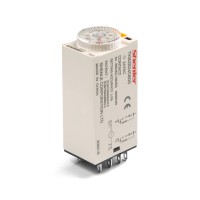TimerDownload
Timer relays are essentially electronic timers that can be used to turn on or off an electrical device at a specific time. They can be used to schedule regular tasks, like turning on a light every day at dusk, or they can be used to control more complex devices like pumps or motors. Timer relays typically have a variety of different settings that can be adjusted to suit your needs.
There are many reasons to use a timer relay. If you have an appliance that you only use for a short period of time each day, a timer relay can help to reduce your energy consumption. Timer relays can also help to protect your equipment from power surges and can provide a measure of safety by automatically shutting off power to your equipment when it is not in use.
Shenle is a timer relay manufacturer specializing in the production of high-quality timer relays. Our relays are known for their reliability and accuracy. If you’re looking for a top-quality timer relay manufacturer, you can’t go wrong with Shenle. Our products are backed by a commitment to quality and customer satisfaction, making them the perfect choice for your next timer relay purchase.
Hot Products
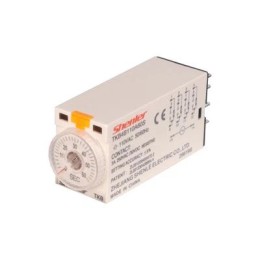

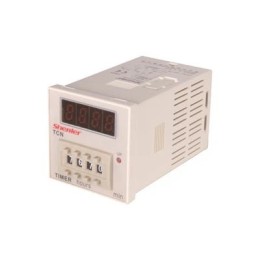

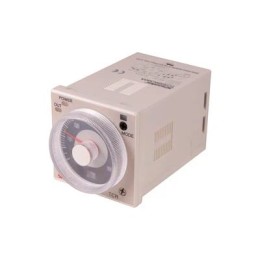

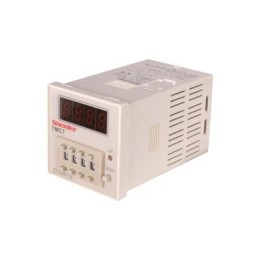

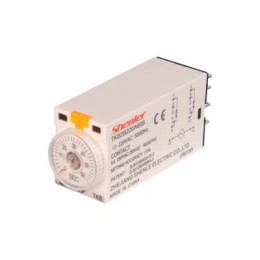

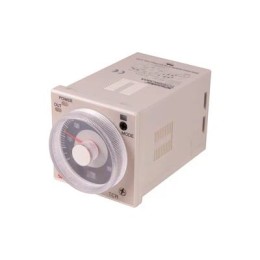

Functions of Timer Relays
Timing relays are relays with a timing function that allows them to control the on/off cycle of a load according to a predetermined period of time.
The following are some common functions of timing relays:
Delayed On: Timing relays with delayed on function will activate the load after a set delay time once the relay is energized.
Delayed shutdown: The timing relay with delayed shutdown function, once the relay is powered off, the load will be turned off after the set delay time.
Interval: Interval time relays will alternate the load between on and off cycles, with each cycle lasting a predetermined period of time.
One-shot: One-shot timer relays will activate the load within a predetermined period of time after the relay is energized, regardless of how long the input signal has been applied.
Cycle: A cycle timer relay will activate the load for a predetermined on time period, then turn off the load for a predetermined off time period, then repeat the cycle.
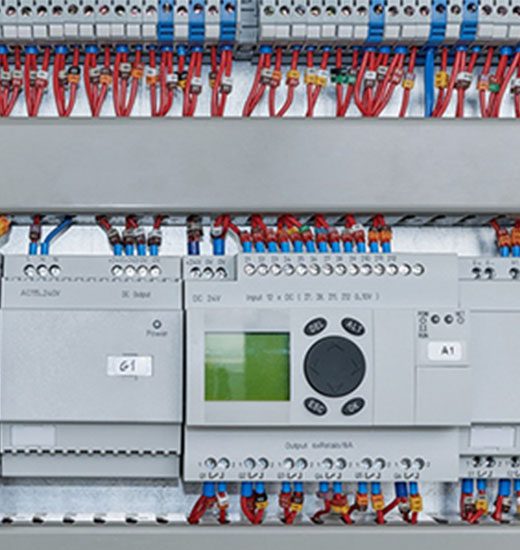
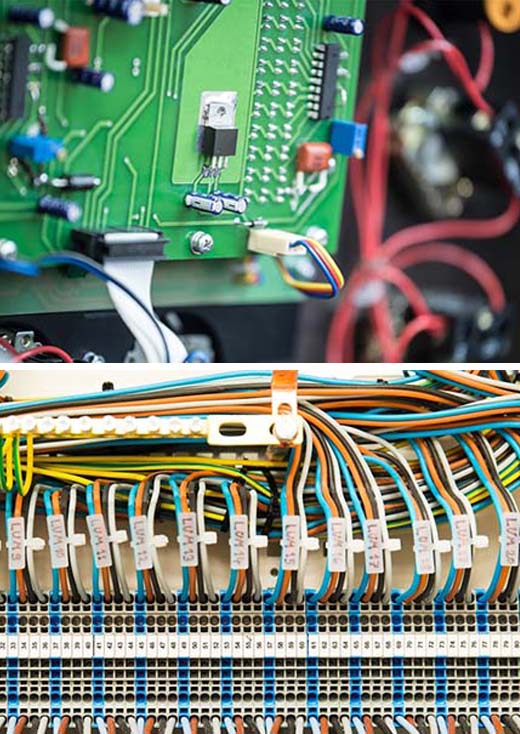
Application area
Timer relays are used in a variety of applications from industrial machinery to home appliances. They provide a means of controlling the timing of a circuit and can be used to turn devices on or off at specific time intervals.
Here are some common application areas for timing relays:
Lighting control systems to automatically turn lights on and off at preset times, or dim lights gradually over a period of time.
HVAC systems that control the operation of fans, pumps, and other equipment according to preset schedules or occupancy patterns.
Motor control applications to start and stop motors based on preset timers or cycle times.
Process control applications to activate pumps, valves and other equipment based on specific timing requirements.
Security systems to activate alarms, door locks and other devices according to preset schedules.
Irrigation systems that activate and deactivate pumps and valves according to a pre-set watering schedule.
Automotive applications to control the operation of lights, horns, and other electrical equipment according to preset timing requirements.
Power control applications to power on and off devices based on specific timing requirements.
Benefits and Drawbacks of Time Delay Relay
There are both advantages and disadvantages to using a time delay relay. Some benefits include the ability to customize delay times, the ability to control large electrical loads, and the ability to provide safety in hazardous situations. Some disadvantages include the need for regular maintenance and the possibility of failure.
Benefits of Time Delay Relays
Precision Timing Control: TDRs provide precise timing control that can be tuned to meet specific application requirements.
Flexibility: TDRs can be used in a wide range of applications requiring sequential control, such as motor control, lighting control, and process control.
Increased Efficiency: By controlling the timing of electrical devices, TDRs can increase system efficiency, resulting in lower energy consumption and cost savings.
Reduced wear and tear: TDRs help reduce wear and tear on equipment because they prevent equipment from running continuously or for longer than necessary.
Safety: TDRs can be used to provide safety functions, such as preventing equipment from starting or stopping unexpectedly, or preventing motors from restarting after a power loss.
Disadvantages of time delay relay
Complexity: TDRs can be more complex to install and set up than simple on/off relays because they require adjustments to the timing mechanism.
Cost: TDRs can be more expensive than simple on/off relays, especially if they have advanced features or precise timing requirements.
Limited Applications: TDR may not be suitable for all applications, as some devices may need to operate continuously or outside of specified timing windows.
Maintenance: TDRs require regular maintenance to ensure that they function properly and that the timekeeping mechanism is accurate.
Collectively, TDRs can provide precise timing control, thereby improving the efficiency, safety, and lifetime of electronic equipment. However, they may not be suitable for all applications and may require more maintenance and setup than a simple on/off relay.
